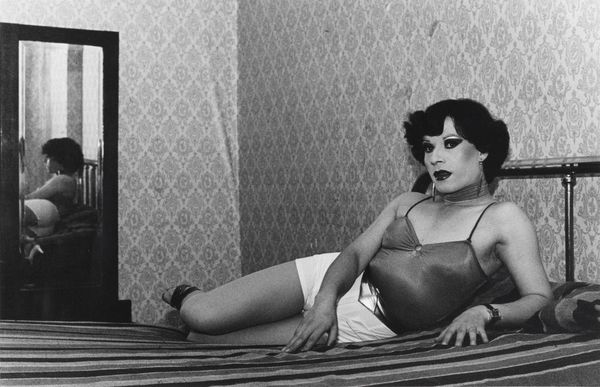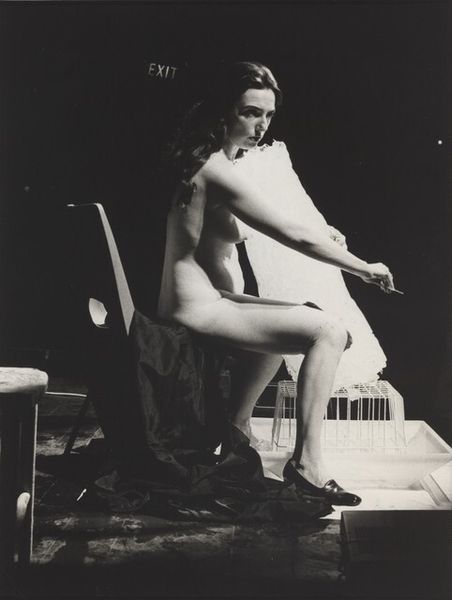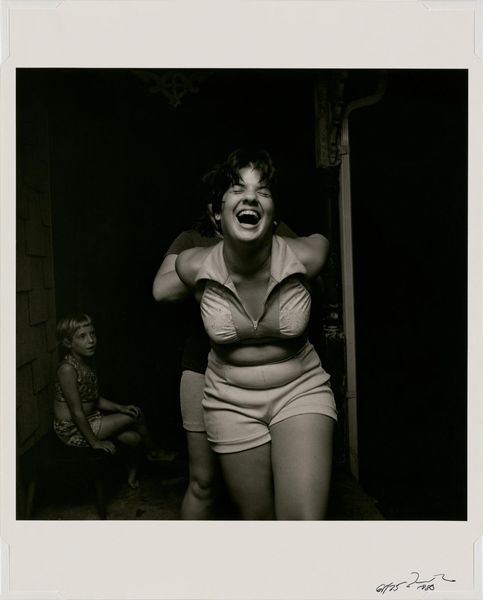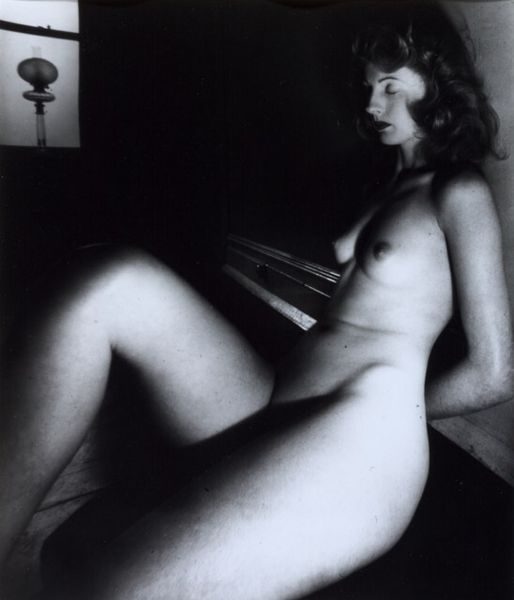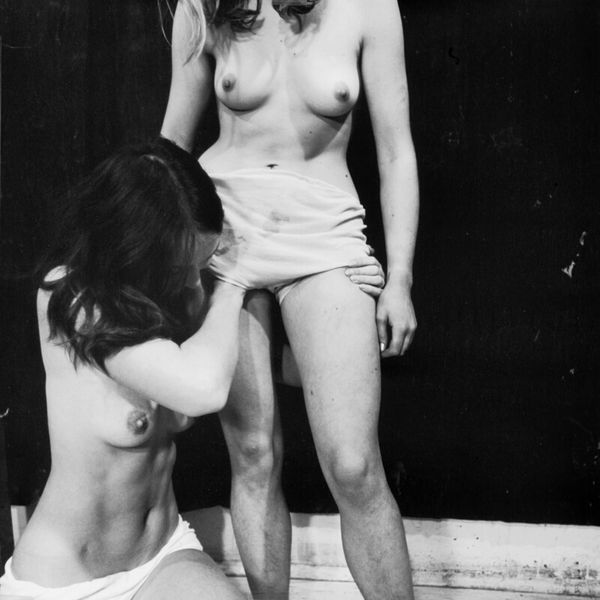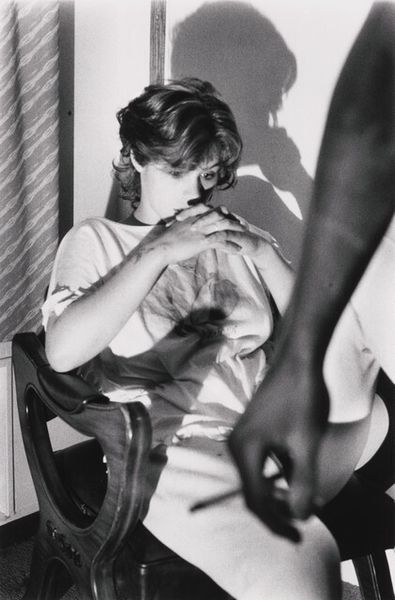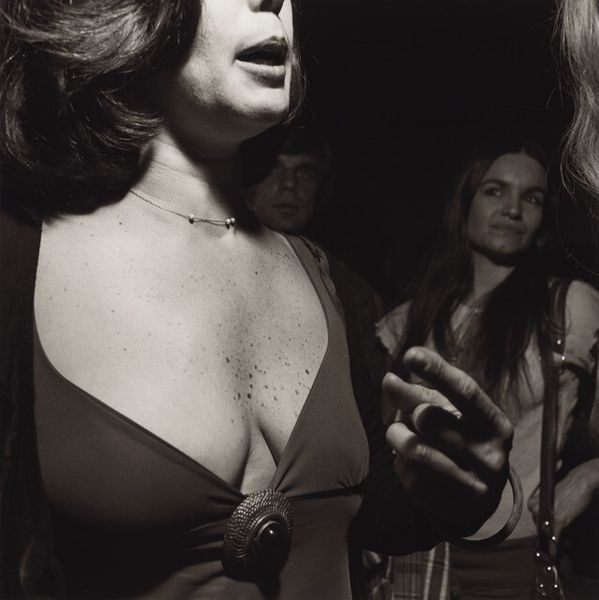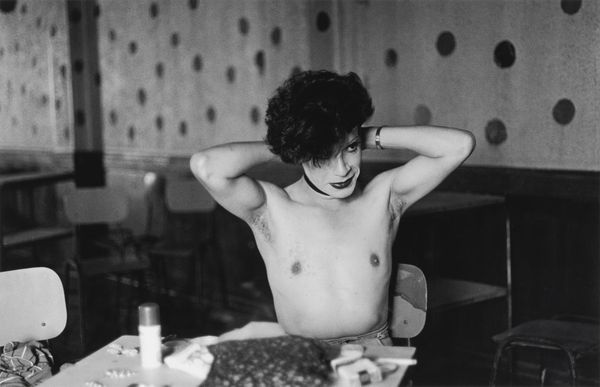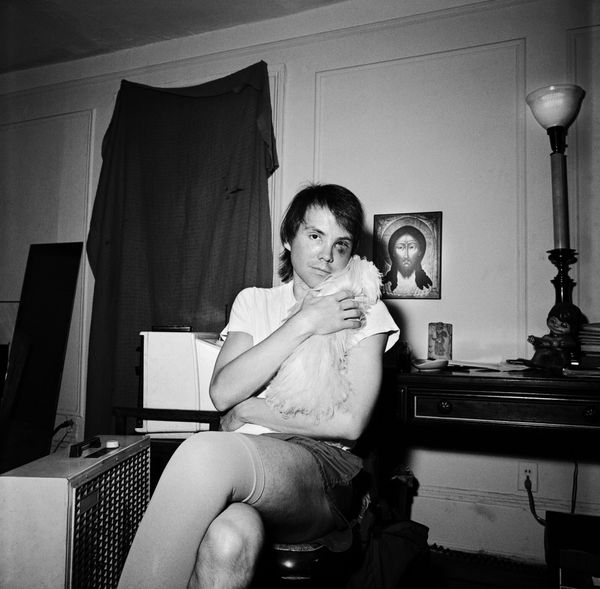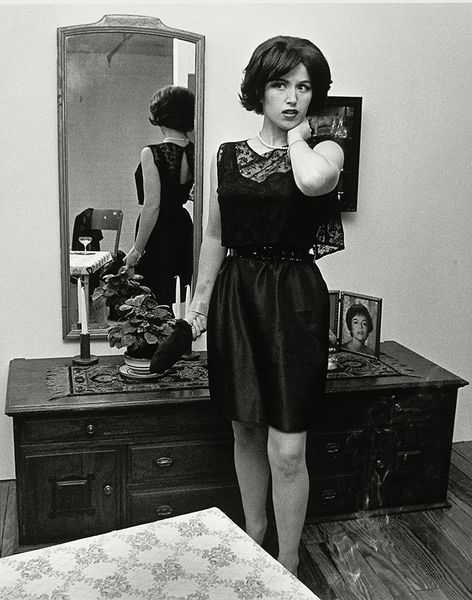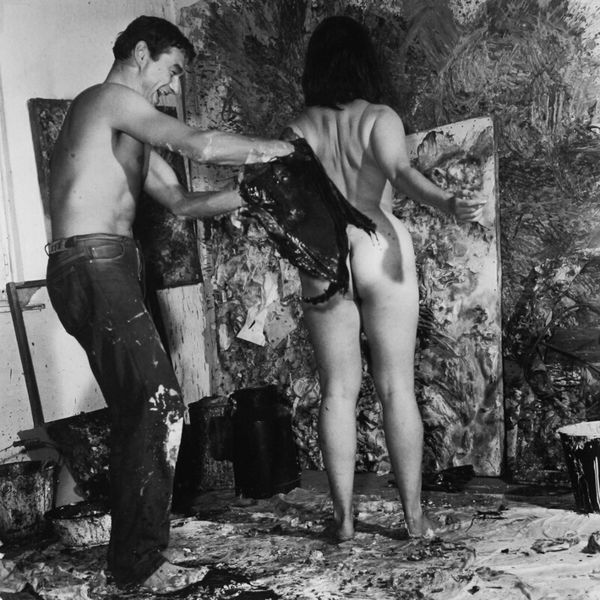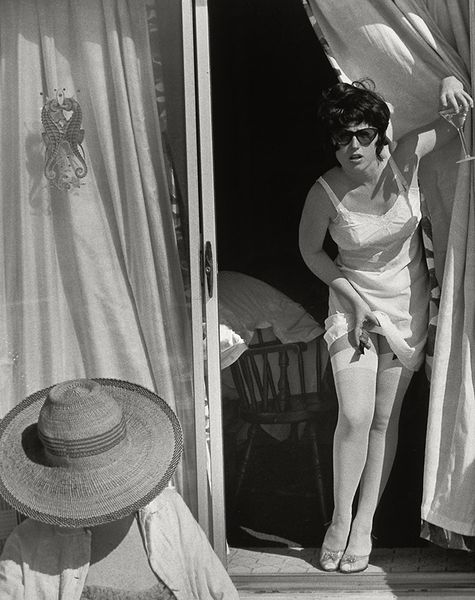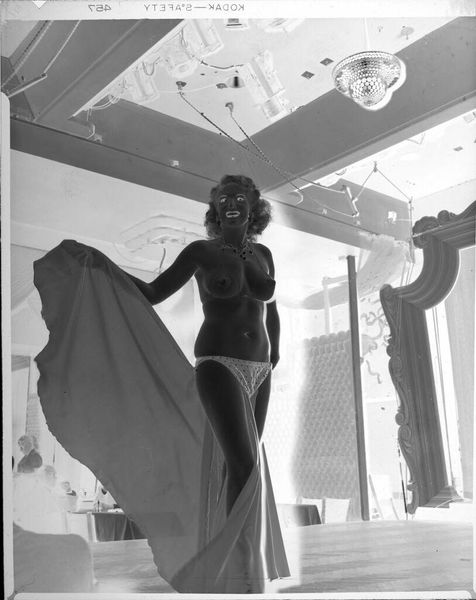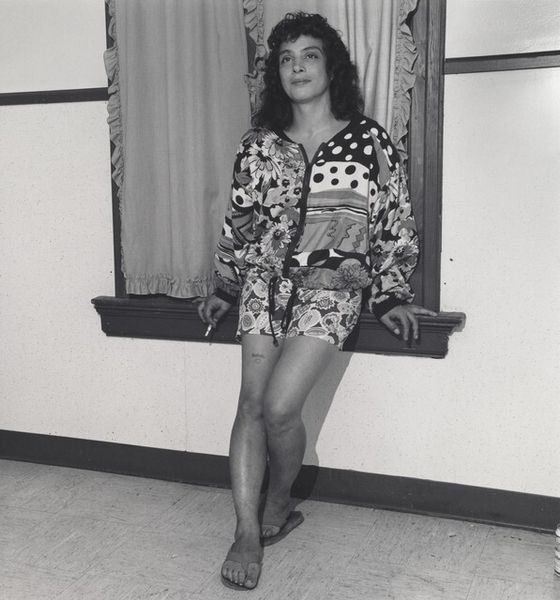
Dimensions: image: 460 x 296 mm
Copyright: © Paz Errazuriz | CC-BY-NC-ND 4.0 DEED, Photo: Tate
Editor: This is Paz Errazuriz's photograph, "Adam’s Apple," from the Tate collection. It's a black and white image, quite striking. The figure stares out, vulnerable yet defiant. What’s your take on this piece? Curator: This photograph is deeply rooted in the socio-political context of 1980s Chile. Consider the censorship and repression under Pinochet. Errazuriz often photographed marginalized communities. How does that inform your understanding of the subject’s presentation? Editor: I see the defiance now, it reads as resistance through self-expression. Curator: Exactly. The mirror becomes a space for constructing identity in a society actively trying to erase it. It highlights the public role of art as a form of protest. Editor: That’s a powerful way to frame it; I hadn't considered the performative aspect. Thanks. Curator: My pleasure. It’s a reminder of how art can challenge power structures.
Comments
Join the conversation
Join millions of artists and users on Artera today and experience the ultimate creative platform.
tate 10 months ago
⋮
These intimate portraits show cross-dresser and transgender sex workers going about their everyday lives in Santiago, Chile. Living in the community for four years, Errazuriz was able to document it from within. She recalled, ‘I found a family that I wish had always been my own’. She took photographs in their homes, on the streets in their neighbourhood, and with friends and family. Under the military dictatorship (1973–1990), gender nonconforming people risked persecution. For nearly two decades the political situation prevented the images from being circulated. Only the underground and artistic communities were aware of their existence. Gallery label, December 2019
